Ghana Takes Bold Step Toward Early Warning for All: Roadmap Presented at Leadership Sensitization Forum
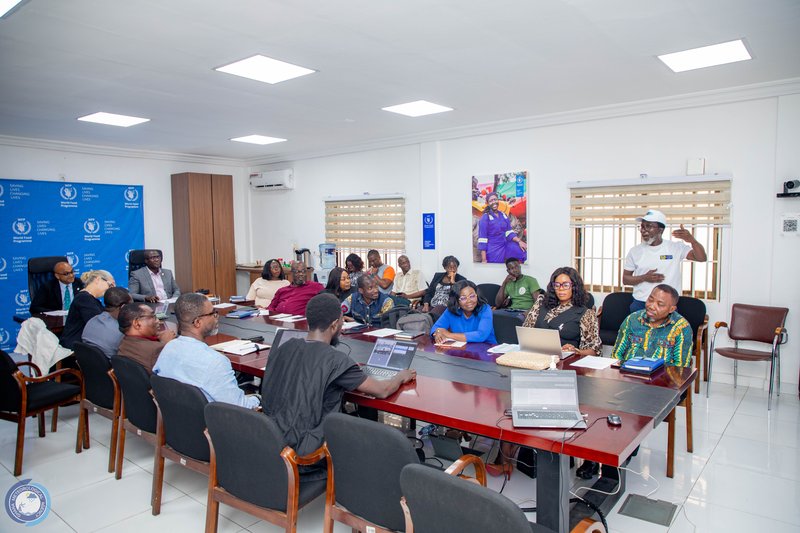
Ghana has unveiled a national roadmap to strengthen early warning systems that will help protect citizens from disasters before they strike. The plan, known as the Early Warning for All (EW4All) Roadmap, was officially handed over to the National Centre for the Coordination of Early Warning and Response Mechanism (NCCRM) at a leadership sensitization forum held at the World Food Programme (WFP) office in Accra on Wednesday, 24th September, 2025.
The event brought together government agencies, the United Nations, civil society, and development partners, all united by one goal to ensure that every Ghanaian, no matter where they live, has access to timely warnings that can save lives and livelihoods.
Speaking at the forum, the UN Resident Coordinator in Ghana, Mr. Zia Choudhry, said the roadmap was a direct response to the UN Secretary-General’s call for all people worldwide to be covered by early warning systems by 2027. Sharing a personal story from his early career in Bangladesh, he recalled how even a basic warning system involving radios, volunteers, and loudspeakers saved tens of thousands of lives from deadly cyclones.
“For me, I have seen first-hand that even a simple warning system can make the difference between life and death. This roadmap is not just a document, it is an investment in lives, livelihoods, and resilience.” he said.
Leadership of the National Centre for the Coordination of Early Warning and Response Mechanism (NCCRM), which sits in the Office of the President, promised to drive the process. Colonel Emmanuel Sampson, the Centre’s Coordinator, described early warning as a matter of foresight and responsibility.
“The real measure of preparedness is not in how we respond after disasters strike, but in how quickly we detect risks and act before they escalate,” he told participants.
Technical institutions pledged their support. The Ghana Meteorological Agency (GMet), which anchors one of the roadmap’s key pillars, traced Ghana’s journey back to COP28 in Dubai where the EW4All agenda was first discussed. GMet’s Deputy Director-General, Mrs. Vivian Abla Kally, assured that the agency is building capacity, engaging the media, and working with communities to make forecasts more accessible.
The National Communications Authority (NCA), represented bythe Acting Director-General, Rev. Edmund Yirenkyi Fianko, outlined plans for a National Emergency Telecommunications Plan, which will ensure that warnings reach citizens through reliable communication channels. He stressed the need to move beyond drafting plans to actual implementation.
For the National Disaster Management Organization (NADMO), early warning is inseparable from response. Its representative, Mrs. Charlotte Norman, said: “We cannot stop disasters from happening, but early warning helps us reduce their impact. With timely alerts, we can prepare better, respond faster, and build stronger resilience as a country.”
Civil society also highlighted its unique role. Mr. Solomon Gayoni, CEO of the Ghana Red Cross Society, reminded participants that while many people in cities may receive alerts through mobile phones and media, rural communities often depend on volunteers. With over 66,000 volunteers nationwide, the Red Cross is ready to bridge this gap through community information centres, disaster response teams, and women-led groups known as “Mothers Clubs.”
Policy and regulatory bodies also pledged alignment. The National Development Planning Commission (NDPC) confirmed that early warning will be integrated into Ghana’s medium-term development framework and monitored at the local level. The Environmental Protection Agency (EPA) noted that Ghana’s new Climate Change Act requires disaster risk reduction to be mainstreamed in all sectors, while the Ministry of Communications, Digital Technology and Innovationsreaffirmed its leadership role, including efforts to strengthen infrastructure resilience.
Closing the session, the UN Resident Coordinator reminded participants that the roadmap must not “sit under the car seat” but be actively implemented. “Prevention pays,” he stressed, urging Ghana to see early warning as a smart investment that will yield multiple returns in safety, security, and development.
With the roadmap now in place, Ghana joins other countries working to deliver on the global goal of protecting every person with early warning systems by 2027, a step that promises to save lives, reduce losses, and strengthen resilience for generations to come.
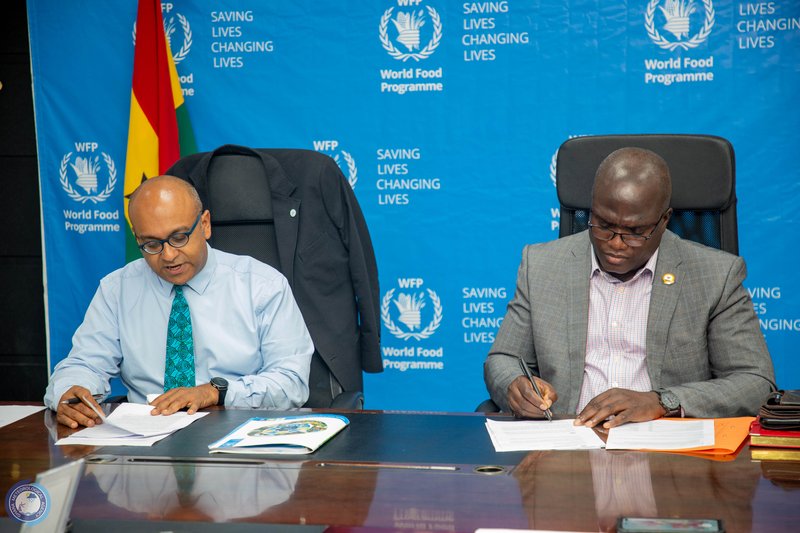
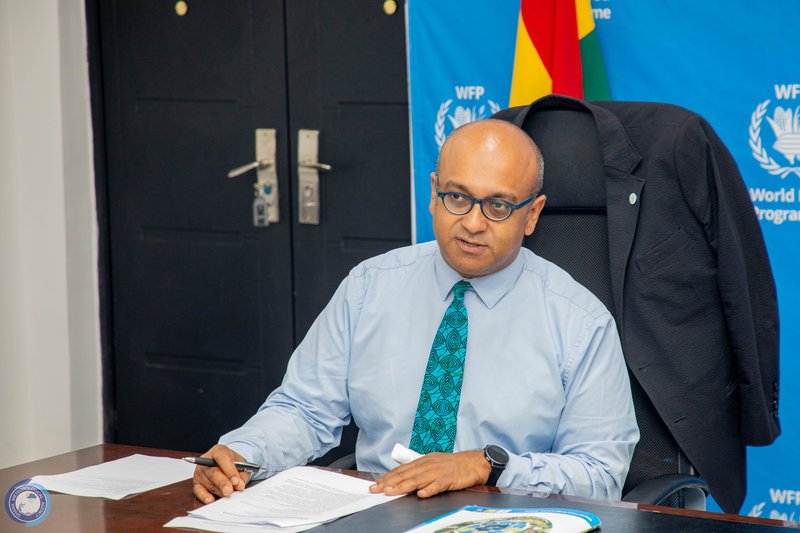
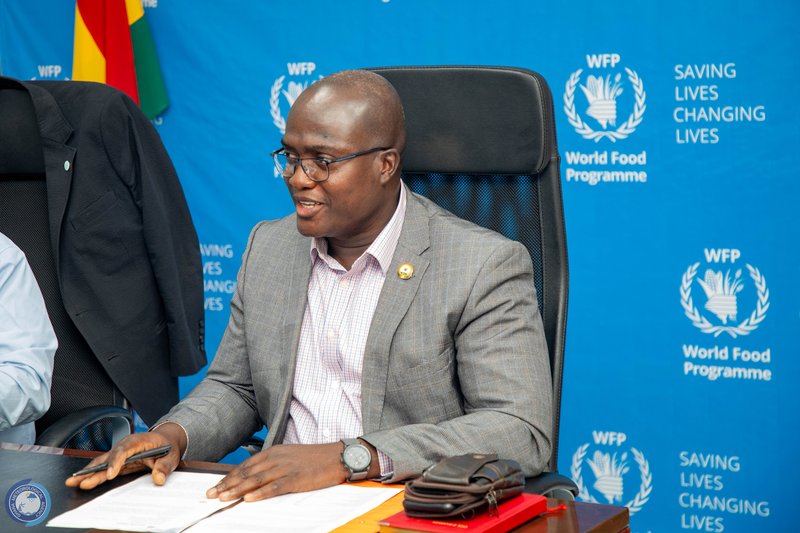
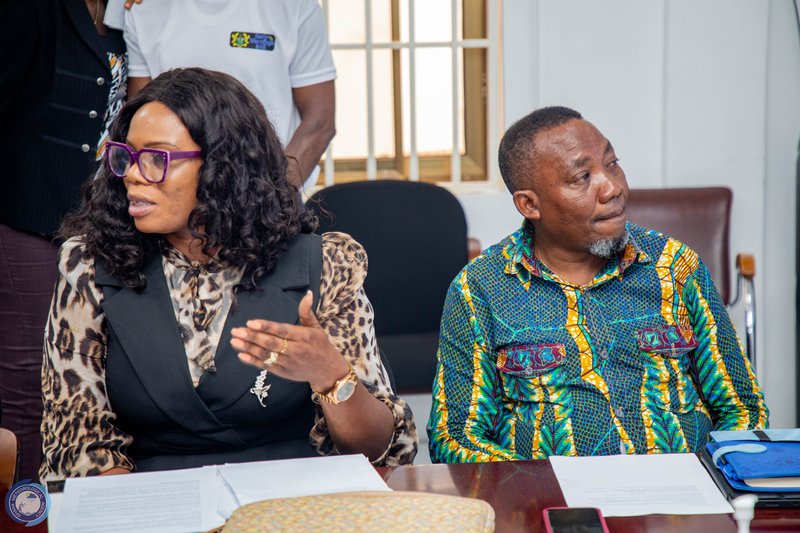
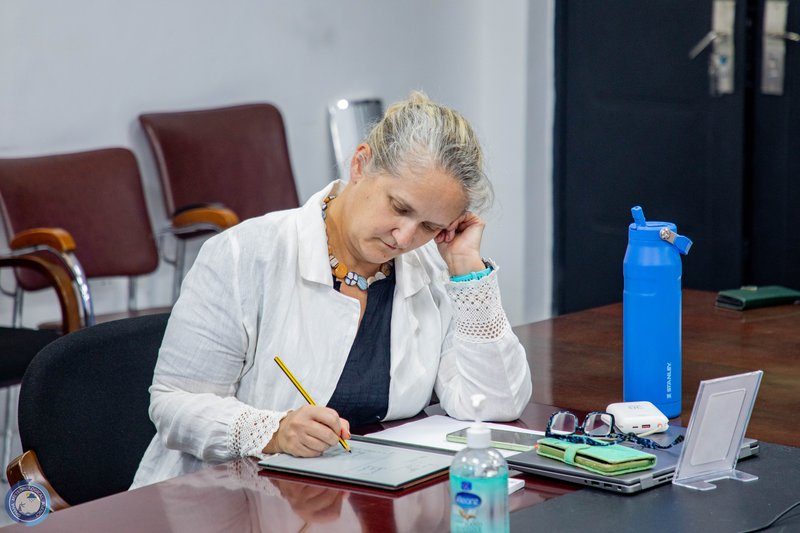
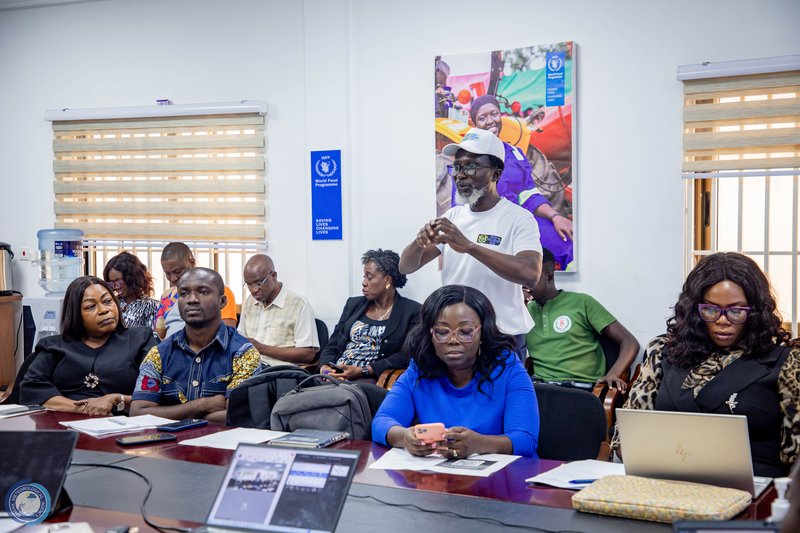
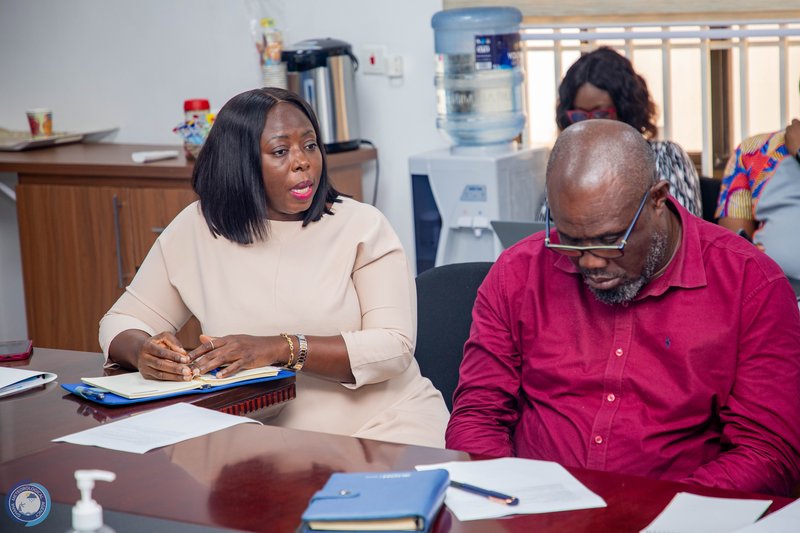
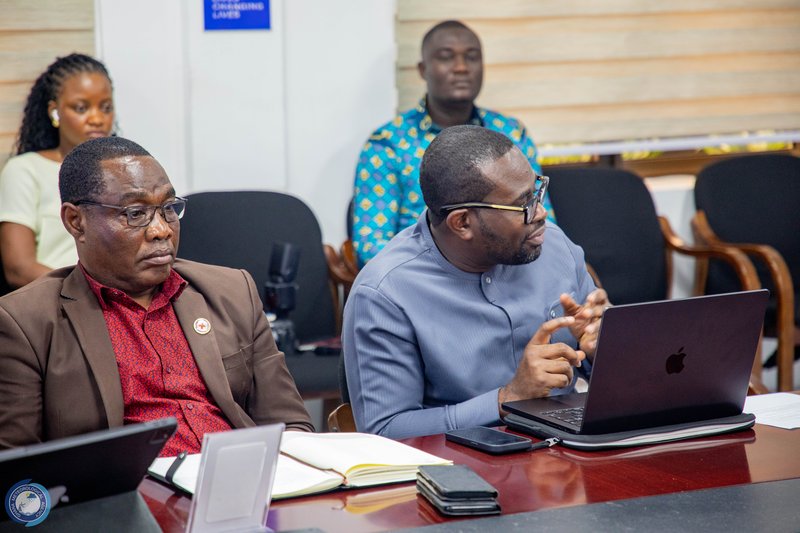
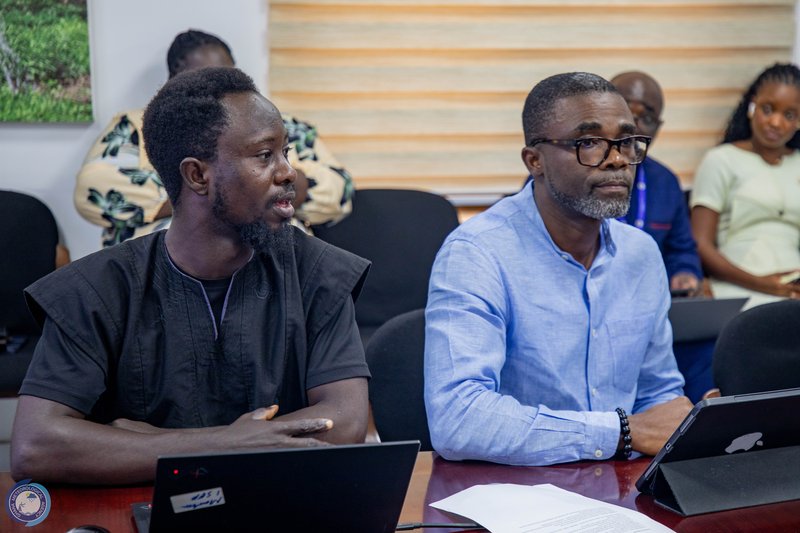
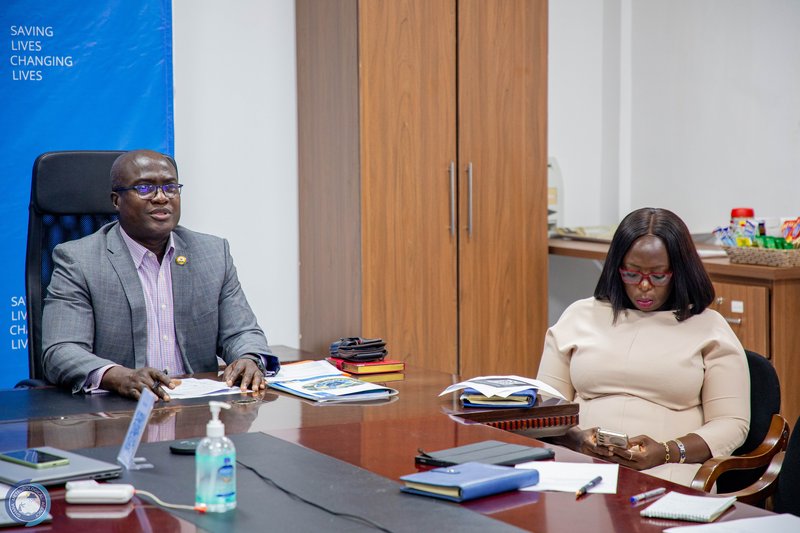
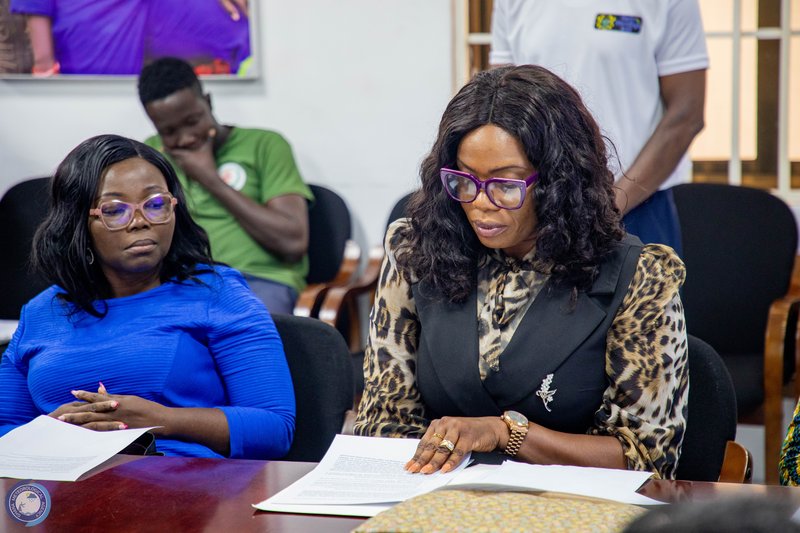
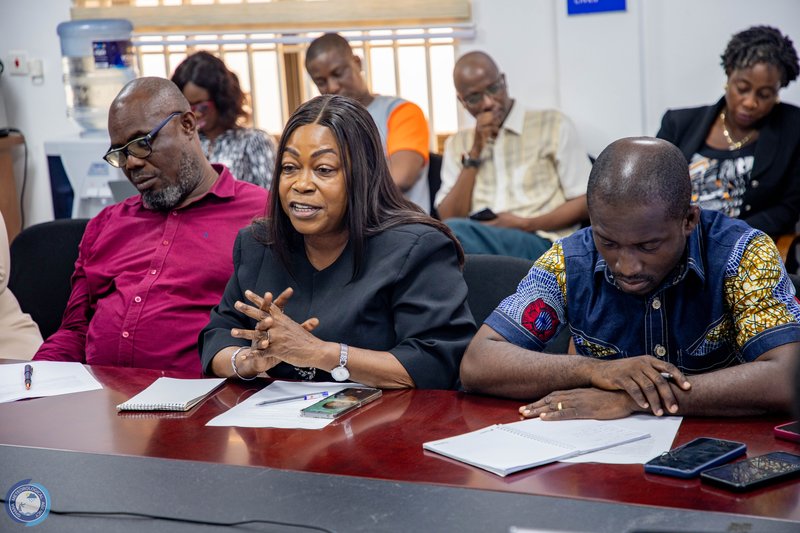
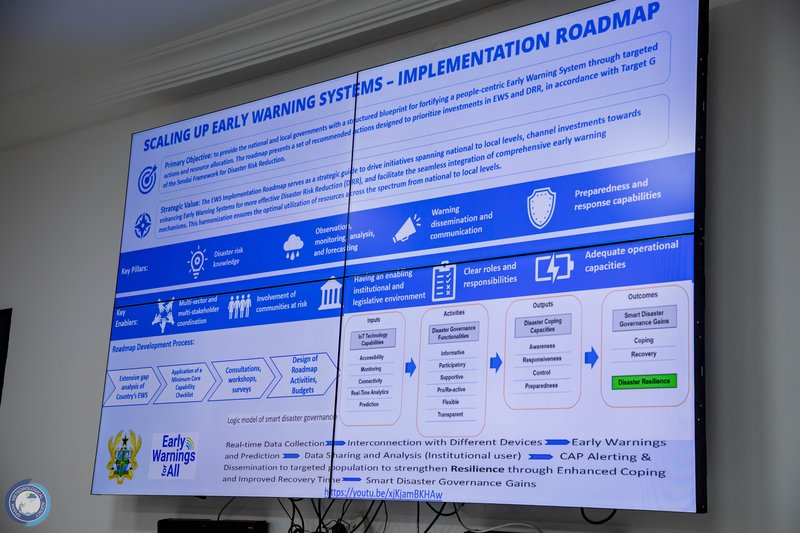
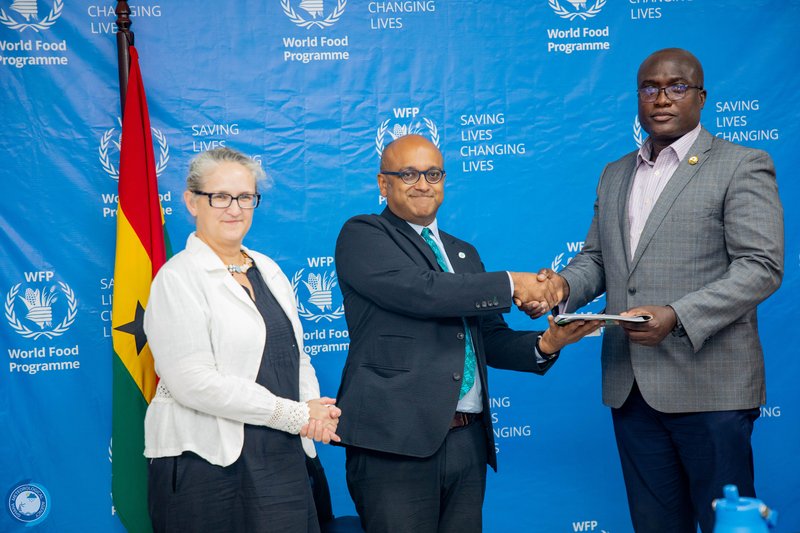
©️GMet Communications

